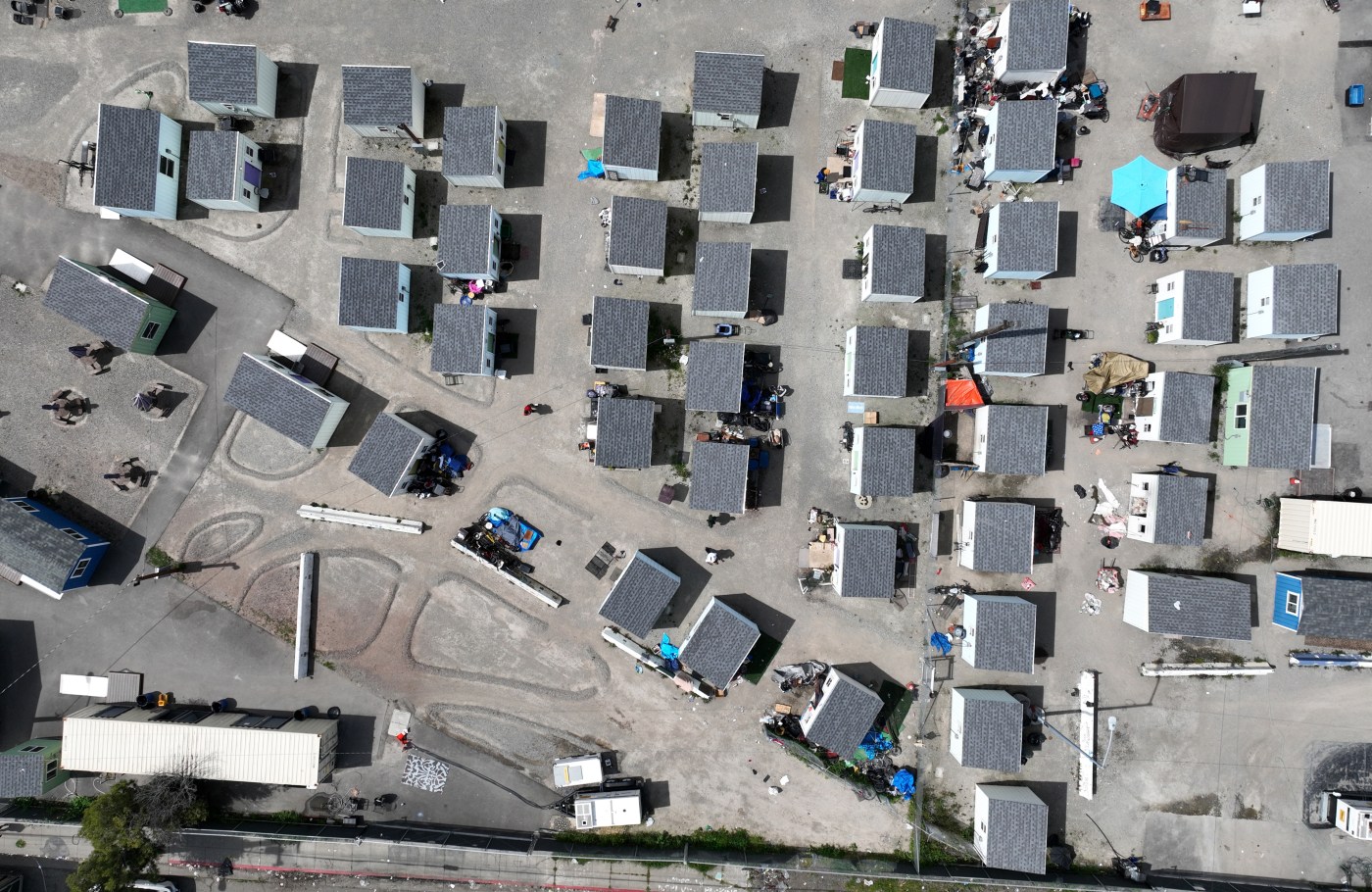
Despite appeals from more than a dozen local mayors asking for all of the $1.8 billion in expected Measure W funding to be used to address homelessness in Alameda County, the Board of Supervisors voted on Tuesday to direct 20% of the money to fill gaps in food security, mental illness initiatives and healthcare.
The debate over the money from Measure W — a one-half percent general sales tax approved by the voters in November 2020 that had been tied up in litigation until April 2025 — comes as state and federal funding cuts threaten critical safety net services.
The board’s decision came despite 14 mayors from Alameda County cities arguing that the funding should go entirely toward homelessness, but Fremont Mayor Raj Salwan told Bay Area News Group he’s not entirely unhappy with the outcome.
“I can live with it. I would like it higher, at 100%, (or at least) 90%,” he said, noting his city has the second largest homeless population in the county. “Otherwise, we’ll just keep spending money and nothing’s going to happen. It’s a little disappointing. It’s been so many years we’ve been waiting for this funding.”
Related Articles
Berkeley’s Homeless Response Team has room for improvement, audit finds
San Jose has just as many homeless people as it did two years ago, despite sheltering many of them
In a nation growing hostile toward drugs and homelessness, Los Angeles tries leniency
150 homeless shelter beds are likely headed to Oakland. Just not in Chinatown.
Fresh off testing presidential waters, Newsom announces new housing and homelessness agency
The meeting filled three overflow rooms as the supervisors prepared to offer guidance on $650 million in existing funding, with an additional $190 million expected annually through 2031. County staff recommended that 58% of the funds go to the Oakland/Piedmont region, 16% to the Hayward, San Leandro and San Lorenzo, 11% to Fremont and the south county area, 10% for Berkeley and the north region and 5% for east county cities, based on their homeless populations.
The measure’s passage was met with a legal challenge from the Alameda County Taxpayers Association, which argued Measure W was a “special tax” focused on homelessness and therefore required two-thirds approval from voters. The county, meanwhile, said the measure was a general tax that only required a simple majority.
Though the measure raised funding, its allocation was frozen as the lawsuit progressed through the courts. That ended in April when the California Supreme Court upheld an Appeals Court decision in favor of Alameda County.
Just as Measure W funding was freed up, the state announced cuts to MediCal, and Congress approved a bill stripping approximately $1 billion from Medicaid and reducing funding for food stamps by 20%. The cuts have been particularly hard for cities, which have had to eliminate food security programs, anti-violence initiatives and youth support programs.
“This is our opportunity to humanely house people and house them with dignity, and honor the will of our voters. And it’s also an opportunity to meet the moment when so many county residents stand to lose their access to healthcare and food assistance,” Supervisor Nikki Fortunato Bas, who initially hoped to use 90% of the fund for homelessness, told Bay Area News Group ahead of Tuesday’s meeting.
Though Measure W funds represent a historic investment in addressing homelessness, the 80/20 split could make sustaining re-housing programs more difficult. Linda Mandolini, the executive director of the Hayward-based nonprofit Eden Housing, said low-income renters are increasingly at risk of homelessness.
“If I had my druthers, I would build more housing, provide wrap-around services for that housing and preserve the affordable housing that currently exists,” Mandolini said. “We just opened a project here in Castro Valley. We have 78 units, and 6,700 applications. It’s overwhelming, the demand.”
Hayward Mayor Mark Salinas said that cities across the county are seeing constituents ask more from their local governments – namely, to reduce and end homelessness. But cities, he said, are not social service agencies that can handle it alone.
“Up and down Mission Boulevard, we’re producing housing for young families to senior citizens,” Salinas said. “Mayors across the county are looking for financial relief, and we’re also looking for partners, in this case, the county, to support the work that we’re doing.”
Salwan said he expects no less than about $100 million of the current $650 million reserve as part of “geographic equity,” pointing to the city making up 14% of the county population. Fremont recently opened the 54-unit Fremont Family Apartments for formerly homeless residents. Additional funding could be used to repurpose old hotels and invest in mental health, addiction and job training services.
“Imagine the kind of projects that we can build with that kind of money,” Salwan said.
The county had approved a $395 million allocation for homelessness in December out of the Measure W reserve, and it may find additional support with the state’s Proposition 1, which includes a $6.4 billion bond for housing and homelessness. Still, the Board of Supervisors kept 20% of Measure W funding on hand for safety net services due to the uncertainty in Washington, D.C. Salinas said that nuance is required to fight against homelessness and address why people end up on the streets in the first place.
“You cannot talk about homelessness and leave out a conversation on safety net services. Those two go hand in hand,” Salinas said. “They’re often drug addicts, alcoholics, they have dependencies. It’s more than just putting someone into a shelter. We’ve gotta connect them to services.”
The Board of Supervisors will take a formal vote on July 30 to implement the Board of Supervisors’ direction from Tuesday.